CAMOUFLAGE’s ‘Rewind To The Future & Goodbye’ tour was an opportunity for the German electronic pop veterans to look back on four decades. And while CAMOUFLAGE’s past was being celebrated, new songs such as the autobiographical tour title song and ‘Everything’ were also included.
Influenced by the likes of KRAFTWERK, THE HUMAN LEAGUE, DEPECHE MODE and DAF, Oliver Kreyssig, Heiko Maile and Marcus Meyn, formed CAMOUFLAGE in Bietigheim-Bissingen and eventually settled on the name after a track on the 1981 YELLOW MAGIC ORCHESTRA album ‘BGM’. Their 1987 debut single ‘The Great Commandment‘ was certifiled Gold in Germany while it was an American hit in 1989, peaking in the Billboard Hot100 at No59 while also being a Billboard Dance Club Play No1. Another German Gold single and Top10 ‘Love Is A Shield’ followed.
With eight albums to their name, CAMOUFLAGE have a formidable back catalogue, as exemplified by their recently released multi-disc retrospective, also called ‘Rewind To The Future & Goodbye’; the band invited their fans via social media to vote for their favorite tracks and the resultant 40 track collection includes not just singles but B-sides, fan favorites and rare recordings.
ELECTRICITYCLUB.CO.UK had the pleasure of meeting CAMOUFLAGE in Hamburg and Oberhausen during the ‘Rewind To The Future & Goodbye’ tour, so took the opportunity afterwards to catch up with Heiko Maile for a comprehensive new career spanning interview…
CAMOUFLAGE have been around for 40+ years, that is a long time to be in a band but when you first formed in Bietigheim-Bissingen, was lasting so many decades ever in your thoughts? Was it something you even joked about?
Certainly not! Back then, our dream was simply to record in a professional studio and produce a 12 inch vinyl for ourselves, our friends, and our earliest fans. The original version of ‘The Great Commandment’ was created during such a session – that it would lead to such a long story for our band was, of course, unimaginable. Sure, we made jokes about it, or dreamed of winning the lottery like everyone else, but in a way, that’s what happened with CAMOUFLAGE. You need talent, a lot of hard work, and most of all, plenty of luck to be in the right place at the right time. One such moment for us was our debut single.
CAMOUFLAGE arrived just as analog synthesis was being superseded by digital synthesis and sampling, what keyboards were first being used and how was the band adapting to this technology race where new equipment was coming out all the time?
Looking back, this transitional period was the perfect environment for us. On one hand, many instruments and techniques became affordable for beginners like us, and on the other, there were constant innovations, which meant older analog devices became available at reasonable prices on the second-hand market. Of course, even these “affordable” devices were still expensive for us, but just a few years earlier, much of this technology was only accessible to established artists with big budgets.
We invested all our savings to buy our first gear and spent every school holiday working factory jobs to afford new equipment. That’s how our first setup came together: a Roland Juno-60, a JX-3P, a TB-303 Bassline, a Korg MS-20, and a Roland TR-808 drum machine.
What are your memories of performing on TV for the first time with ‘The Great Commandment’ in Summer 1987, was there feeling that something big was about to happen for you all?
Well, we were certainly curious about what would happen after our first TV appearance. From an outsider’s perspective, it might have seemed like an overnight success, but for us, it marked the end of a long period of waiting, during which we sometimes doubted the single would ever be released. The journey to that point had many steps.
It all began with the first studio recording with Axel Henninger, which largely resembled the “Extended Radio Mix” that was later released. The response to this recording from our label, Westside Music, was so positive that they had high hopes for its release. This led them to partner with promoters and distributors, including Karin Wirthmann, who later became our manager. She introduced us to Metronome Records, which offered exciting prospects but also slowed things down with new plans and strategies.
One idea was to wait for the right TV show to showcase our single to a large audience – this finally happened about a year after the initial recording. The waiting tested our nerves, but it was worth it. Although the show aired on a Sunday morning, the response was phenomenal. We also did a lot of radio promotion, which kept the momentum going. The reactions were fantastic and kept us incredibly busy for the next two to three years. Back then, TV had a much bigger impact than it does today.
How do you look back on the making of your debut album ‘Voices & Images’? Was it just forward momentum all the way through?
It was more of an unfiltered, perhaps even naïve time. Of course, the success of the single put some pressure on us, but we had plenty of songs and ideas from the years before, so we simply selected our favorites. Scheduling studio time was trickier, though, since Oliver was still in training and Marcus was finishing his final year of high school. I had already completed my vocational training and decided – even before ‘The Great Commandment’ became a hit – to devote a year entirely to music. This allowed me to work in the studio with Axel Henninger on the tracks for the album, while the others joined us on weekends. There were a few challenging moments, but I remember this phase as an exciting and intense time of growth. We absorbed every new studio experience like sponges.
This contrasts with our second album, ‘Methods of Silence’, where we had to navigate the expectations that came with following a successful debut. Writing a strong, independent album under those circumstances was our real baptism by fire. With ‘Voices & Images’, we had a stockpile of songs…
‘Voices & Images’ is perfect in its original 10 song LP running order, do you have any favourite songs from it?
No, there isn’t one definitive favorite. Naturally, we sometimes hope that fans and listeners would shine more light on tracks beyond ‘The Great Commandment’, but after our recent tour, we were delighted to see that alongside the eternal fan favorite ‘That Smiling Face’, songs like ‘Stranger’s Thoughts’ and ‘Neighbours’ are still true crowd-pleasers!
As a film score composer today, I particularly enjoy revisiting ‘Voices & Images’. Tracks like the 3/4 time signature and flugelhorn solo on ‘I Once Had a Dream’ or the mysterious sounds of ‘Pompeii’ stand out to me as personal highlights.
Marcus once described CAMOUFLAGE songs as “melancholic and sometimes sad – but not negative”, was this one of the advantages you had over DEPRESSED MODE that set you apart?
Honestly, there was never a master plan behind it. It’s more of a snapshot of our life situations at the time. Early DEPECHE MODE also had a much more “positive” sound, and they released far more albums than we did. For example, ‘Sensor’ had significantly darker moments compared to ‘Relocated’.
What our music might have sounded like during phases where we didn’t release anything is something we’ll never know. However, I do think there’s a certain emotional foundation in our work that leans more toward hope and optimism rather than dystopia or hopelessness.
After ‘The Great Commandment’, was the pressure was on with the second album ‘Methods Of Silence’ and to achieve another hit? You did it with ‘Love Is A Shield’, was it yours or the record company’s decision to bring Peter Godwin in to help with the lyrics?
The idea to involve Peter Godwin came from our producer at the time, Dan Lacksman, but also because we wanted more confidence in our lyrics. Since our music had such an international reach, it became even more important to avoid significant errors as non-native speakers. So, the collaboration was more of a proofreading process – the lyrics were all written by us. It’s a bit unfortunate in hindsight that it sometimes seems like Peter played a larger role in the process than he actually did.
On ‘Methods Of Silence’ you covered ‘On Islands’ by NEW MUSIK, is Tony Mansfield one of the most underrated songwriters and producers ever because his influence can be clearly heard in the more synthpop work of THE WEEKND?
We’ve always been fans of NEW MUSIK and could never understand why they didn’t achieve greater success. In addition to the ‘Anywhere’ album, which had a huge impact on us, their album ‘From A To B’ was also very influential. Not only because of ‘On Islands’, but even the name of our demo tape, ‘From Ay To Bee’ (1985), was directly inspired by it. Beyond his impressive work as a producer for A-HA, THE B-52S, and CAPTAIN SENSIBLE, I was especially excited by the collaboration Tony Mansfield had with one of my other musical idols – Yukihiro Takahashi – on his album ‘Neuromantic’ in 1981.
Through our cover version, ‘On Islands’ became a part of us in a way, and many of our fans see it that way too. Personally, looking back, I find our version a bit unfortunate because we stuck so closely to the arrangement and sound of the original. At the time, we saw this as a mark of respect and homage. But we’ve since learned that a cover should ideally add a fresh perspective to the original. Still, as fans, we achieved our goal: to bring this great song to a wider audience!
Apart from ‘Kling Klang’ and ‘Kraft’, CAMOUFLAGE lyrics are almost exclusively in English, so have you ever dreamt in English?
During the height of our success, we spent a lot of time in the US and gave countless interviews in English. So yes, it did happen occasionally.
Our decision to write lyrics in English was influenced by feedback from a publisher we approached, along with many other labels, during our early days. Our demo tapes included songs with both English and German lyrics. Like most others, this publisher turned us down but offered some valuable advice: to focus on one language moving forward.
In 1990, Oliver left but did this prompt CAMOUFLAGE to explore more traditional directions with violin, sax and live drums as well as more guitar?
Oliver’s departure at the end of our first live tour was a significant turning point for the band. Although we had been aware of his decision for a few months, it was still a major change, especially after spending almost every moment together over the previous three years. Tensions had built up, and in hindsight, it might have been better if we had taken a break from each other to clear our heads and regain perspective.
The tour itself was a fantastic experience, particularly because we performed with Ingo Ito (guitar), Thomas Dörr (drums), and Robin Loxley (keyboards). We increasingly enjoyed the blend of electronic and live instruments. Later, violinist and keyboardist Julian Boyd (aka Julian DeMarre) joined us, and we collaborated with him for several years.
In hindsight, do you think this was the right way to go on ‘Meanwhile’? What lessons did you take away from working with Colin Thurston as producer?
In a way, the move towards acoustic instruments was a logical extension of the evolution between our first two albums. We also became bolder about embracing “other” influences, like THE BEATLES, TALK TALK, or Daniel Lanois. With the success of our earlier albums, we had the budget to explore freely. We even had a great conversation in London with Midge Ure but ultimately decided to work with Colin Thurston. His impressive production credits drew us in, but it was his eccentric personality that convinced us he’d bring unorthodox and fresh ideas to the table.
The production started promisingly, and Colin seemed genuinely enthusiastic about our work. But over time, it became clear that he wasn’t contributing as much as we had hoped. Perhaps this was due to the illness he later battled, which we only learned about many years after his death. In the end, all these developments resulted in an album that wasn’t well-received by many of our fans. Even before the final mix, we had a sense of this and resolved to make our next album much more electronic. Looking back, we laugh at many of our decisions, but we also wonder what opportunities might have opened up if ‘Meanwhile’ had been as successful as its predecessors.
You went back to electronics and working with Dan Lacksman again on ‘Bodega Bohemia’, the album features the ‘Suspicious Love’ but closes with the fantastic epic ‘In Your Ivory Tower’, what inspired it and how did you decide to make it so long?
As we wanted the album to embrace a more electronic style, we adopted the motto “Think Electronic”. This mindset led to the creation of an instrumental track, which I initially envisioned as a sort of electronic symphony and the perfect way to close the album. When our guitarist, Ingo Ito, heard it, he suggested he could write lyrics and vocals for it. A few days later, he played us his idea, and we were immediately captivated. The lyrics were inspired by a friend who had passed away from AIDS just a few weeks earlier. I feel Marcus captured the mood beautifully during the studio recording.
Although I was initially hesitant to keep the arrangement at its full length, we ultimately felt that every section of the track was too strong to cut. One of my personal highlights is the violin melody at around 3:57 min, contributed by Julian Boyd. This track became a special collaboration and a fitting conclusion to the album.
In 1995, you released a superb cover of Moon Martin’s ‘Bad News’, how did you figure out it would work as a CAMOUFLAGE track in the context of ‘Spice Crackers’?
Thank you so much for the praise—it really means a lot. Sadly, that album never received the recognition I believe it deserved. Over the years, people have often told us that the production style was ahead of its time. While we’re not sure, it was certainly the album we wanted to make in 1995: a mix of electronic influences driven by the club music trends of the era, yet still melodic, harmonious, and full of sci-fi elements and experimentation.
We were also heavily influenced by the cultural moment—frequent cinema trips to see Quentin Tarantino’s ‘Pulp Fiction’ and a general creative buzz. At some point, Moon Martin’s ‘Bad News’ came back into our minds. It was a track we had danced to countless times in our local youth disco in the early ’80s, and it had always been on our wishlist of potential covers. It felt like the perfect fit for the eclectic style of the album, and we loved bringing it into that world.
The classic trio reunited in 1998 and has now stayed together longer than first time round and produced more albums, how did the approach change to enable this longevity?
The turning point in our band’s history came after the commercial failure of ‘Spice Crackers’. It became clear that we couldn’t continue to dedicate 100% of our time to the band. Around the same time, we had to shut down our studio in Hamburg, and Marcus and I each became fathers within a short span. This led us to reorient our careers and take a two-year hiatus from the band. Both of us moved with our families to Stuttgart.
Eventually, the desire to make music together returned, and we saw this new reality as an opportunity to reassess many of the dynamics that had crept in during the stressful years before. Marcus suggested inviting Oli to join us for a fresh start. At the time, I had set up a new studio in Stuttgart, primarily for production work and commercial music, and we already had a demo – ‘Thief’ – to work on together. In 1998, the three of us were back in the studio, and it felt as though no time had passed.
Since then, we’ve accomplished many projects together, but the fundamental set-up has remained the same: each member has their own career and doesn’t rely on the band’s income. This removes much of the pressure, even though it limits the time we can dedicate to the band. While this approach can lead to delays in album production, it gives us the freedom to create only what we truly want, with virtually no compromises. We all deeply value this arrangement.
The full album return with ‘Sensor’ took a while to complete and it finally came out in 2003, did the delays in making the record taint your memories of it?
After ‘Thief’, we signed with Virgin Germany, who expressed interest in an album but never fully committed. Even our willingness to release ‘The Great Commandment 2.0’ as a single didn’t sway them. While we enjoyed working with the British production team TOY (Kerry Hopwood, Dave Clayton and engineer Q) and found the collaboration promising, we were more eager to focus on a new album rather than revisiting our classic track. Virgin ultimately decided against producing the album, which initially frustrated us but also motivated us to move forward independently.
We announced ‘Sensor’ as our next album, even though its production timeline and release were still unclear. After continuing to work on demos, we eventually found a new partner in Polydor, who fully supported the project. Their commitment helped us bring the album to life with great care and determination.
‘Me & You’ was a great opening salvo for your “comeback” album, how did that come together as a recording?
‘Me & You’ was written during the Virgin era and was frequently performed live at our concerts back then. As a result, there were multiple versions of the song before we finalised the studio version. Each iteration left a mark, with various details and sound snippets finding their way into the final arrangement.
When we signed with Polydor, we planned the production with three different producers for specific tracks: TOY (who had worked on ‘The Great Commandment 2.0’), Gerret Frerichs (aka Humate), and Rob Kirwan (known for engineering U2 tracks and others). While the sessions were promising, the songs ended up pulling in slightly different directions. Budget constraints also forced us to end our collaboration with Rob Kirwan.
TOY developed a strong concept for ‘Me & You’ and their session in England shaped the track significantly. However, they eventually stepped back, citing a mismatch in expectations for the production process. Fortunately, they generously shared their audio files with us, including the incredible driving synth bassline. The final production was completed with Gerret Frerichs in Hamburg, blending elements from various sessions.
Despite the challenges, the resulting album has a cohesive sound. Looking back, I’m especially proud that we overcame the logistical and creative hurdles to deliver something that felt unified and true to our vision.
There has since been two more albums ‘Relocated’ and ‘Greyscale’, how do you look back on those? Which songs still stand out for you?
For me, ‘Relocated’ will always hold a special place as it captures a period in the band’s history when, for the first time in many years, we were all living in the same city. This allowed us to spend a significant amount of time together in the studio, something we hadn’t done with such intensity since ‘Methods of Silence’. The collaboration was incredibly creative, leading to a wonderful blend of collective songwriting. A great example is ‘Dreaming’, which existed as a demo for years but only found its final chorus and arrangement during these sessions. It’s hard to single out one song because I truly like all of them, but my heart often leans toward tracks like ‘Real Thing’ or ‘How Do You Feel?’ which tend to be a bit overlooked.
With ‘Greyscale’, it’s even more difficult to pick favorites because I genuinely believe it’s one of our strongest albums in terms of songwriting. Whether it’s because we worked on it for many years or simply because we’ve grown as writers, I’m not sure. I rarely listen to our own music, but with this album, I’m often amazed by how varied, simple yet complex, and emotionally rich electronic pop music can sound. I think we can be proud of the result, which makes choosing a single song quite tough. ‘Shine’ is a really strong track; I love the cinematic grandeur of ‘Still’, the quintessential CAMOUFLAGE blend of styles in ‘Laughing’, and the powerful, emotional arrangement of ‘End of Words’. For the band as a whole, ‘Leave Your Room Behind’ is probably a highlight, as we had tried to complete it for years but always fell short. In the end, we finally managed to deliver it as it is: a simple, electronic pop song filled with emotion and atmosphere.
Your almost entirely sold-out ‘Rewind To The Future & Goodbye’ German tour has come to an end. How did it feel to be back on stage together after nine years?
The tour was a lot of fun and filled with incredible moments. Of course, Oliver’s decision to step back was a significant turning point for us, but based on the fans’ reactions, I feel we adapted well to this change in our live set. Naturally, Marcus and I would always prefer all three of us to be on stage, but at some point, you have to accept new realities and learn how to handle them. Together with our fellow musicians Jochen Schmalbach (drums) and Volker Hinkel (guitar, keyboards) – occasionally replaced by Stefan “Snöt” Fehling at certain shows – and our experienced live crew, we put together a fantastic show that did justice to our 40 year band anniversary. The response to the tour sparked new energy and excitement for future plans. Oliver is still very much part of the band, and we’re working together on new songs and everything else involved in running a band with a discography like ours.
How do you decide the live setlist, is it like three people trying to paint with the same brush or is it much easier than that?
For the recent tour, we aimed to create a shared time journey. That meant leaving out some of the usual live favorites but instead highlighting other aspects of our band’s history. Of course, the setlist was built on our classics, complemented by key milestones from our perspective and even some new tracks to signal the future. Initially, the setlist was just an idea that felt perfectly balanced to us, but you never know for sure how it will resonate in reality. After our first rehearsals, we were confident it was a great mix, but we were still eagerly awaiting the audience’s reactions!
Despite the tour title, are there any plans for a new album? Does the album have a place still in the modern music marketplace?
There are definitely plans for new songs. Whether those will culminate in an album remains to be seen… we’ll see where it takes us. An album is, of course, a significant undertaking and should stand tall alongside our previously released records. That said, we always think in terms of albums, though our definition leans more towards the length of a traditional vinyl record rather than the full 74-minute package that was once the standard. At some point, we noticed that nearly all of our favorite albums have that classic format of about 2 x 24 minutes. Put simply, I’d prefer 10 really good songs over an album that feels endless.
Conceptually, we still see an album as the ideal collection of songs, even though many people today prefer individual tracks or playlists. This shift hasn’t entirely passed us by either. In the past, we loved crafting “transitions” between tracks within an album, whether with pauses or clear overlaps. Unfortunately, when songs are shuffled randomly on streaming platforms, these transitions often end up clashing. Over time, I think this will lead to fewer such transitions being designed into album tracklists.
As for the “Goodbye” in the tour title and the possibility of the band coming to an end, all I can say is that we have no plans for that yet. If that time comes, we’ll handle it the same way we’ve approached everything else over the last 41 years: on our own terms.
What is your favourite moment in 40 years of CAMOUFLAGE?
When we played the finished version of ‘The Great Commandment’ to others in 1987, the feedback was overwhelmingly positive. We were confident in our song, but it was hard to imagine what lay ahead in the coming months. A few days before the single’s official release, we were invited to perform it on the TV show ‘Spruchreif’. The reaction to that appearance, along with the rest of our promotional efforts, was so overwhelming that a few weeks later, we debuted at No27 on the German singles chart. We received the chart news during a radio interview in Hamburg, and we were ecstatic – it felt like a daydream. As we left the radio station in the car, the sun was shining, and the radio coincidentally played ‘Wonderful Life’ by BLACK – it couldn’t have been a more fitting soundtrack for that moment.
ELECTRICITYCLUB.CO.UK gives its warmest thanks to Heiko Maile
Special thanks to Sean Newsham at Bureau B
‘Rewind To The Future & Goodbye’ is released as a 3CD and 4LP+3CD set by Universal Music, available from https://camouflage.bravado.de/
CAMOUFLAGE 2025 European live dates include:
Warsaw Palladium (26 March), Ostrava Barrák Music Club (28 March), Bratislava Rafinery Gallery (29 March), Prague Roxy (30 March), Vänersborg Subkultfestivalen (27 June), Cologne Amphi Festival (19 July), Osterfeld Kulturhaus (2 August), Schwerin Pappelpark-Bühne (15 August), Neubrandenburg HKB (5 September)
http://www.camouflage-music.com/
https://www.facebook.com/camouflagemusic
https://www.instagram.com/camouflagemusic/
https://open.spotify.com/artist/2YTbBGa3Tf2rRPhiJxWoUN
Text and interview by Chi Ming Lai
19th December 2024

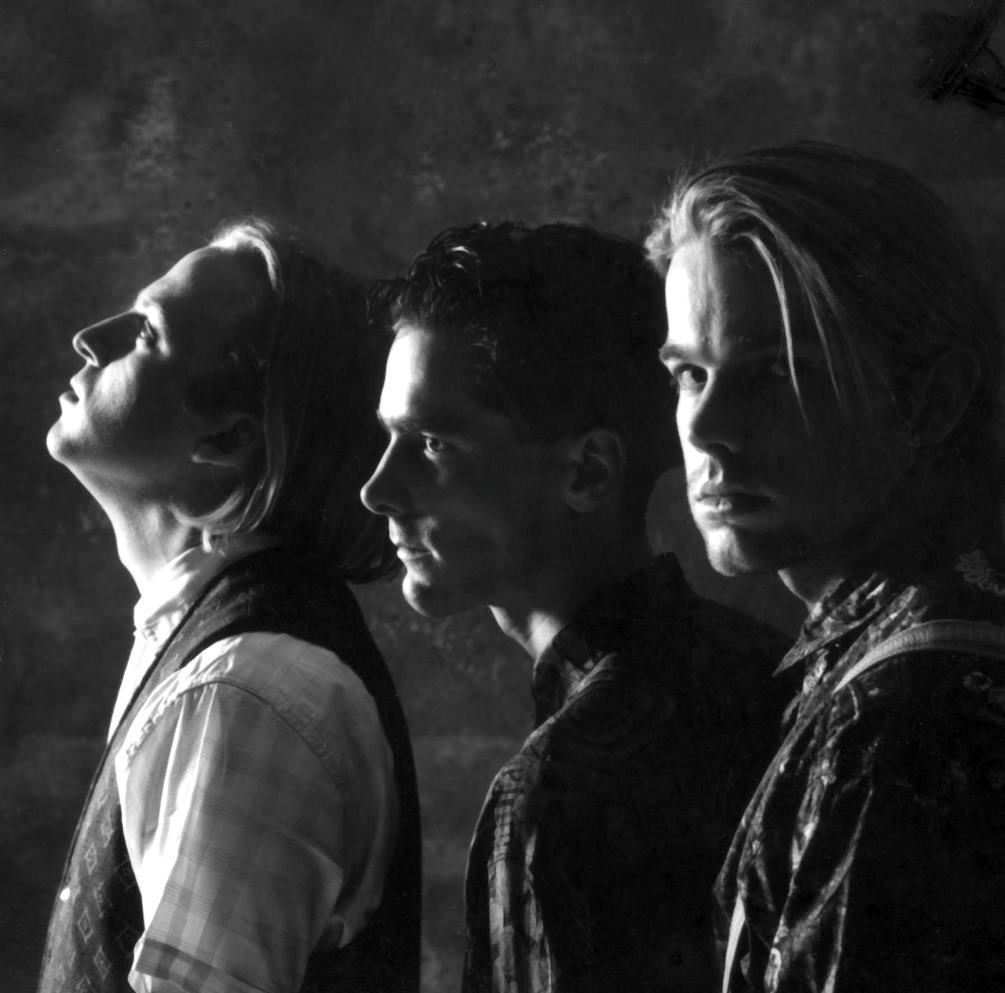
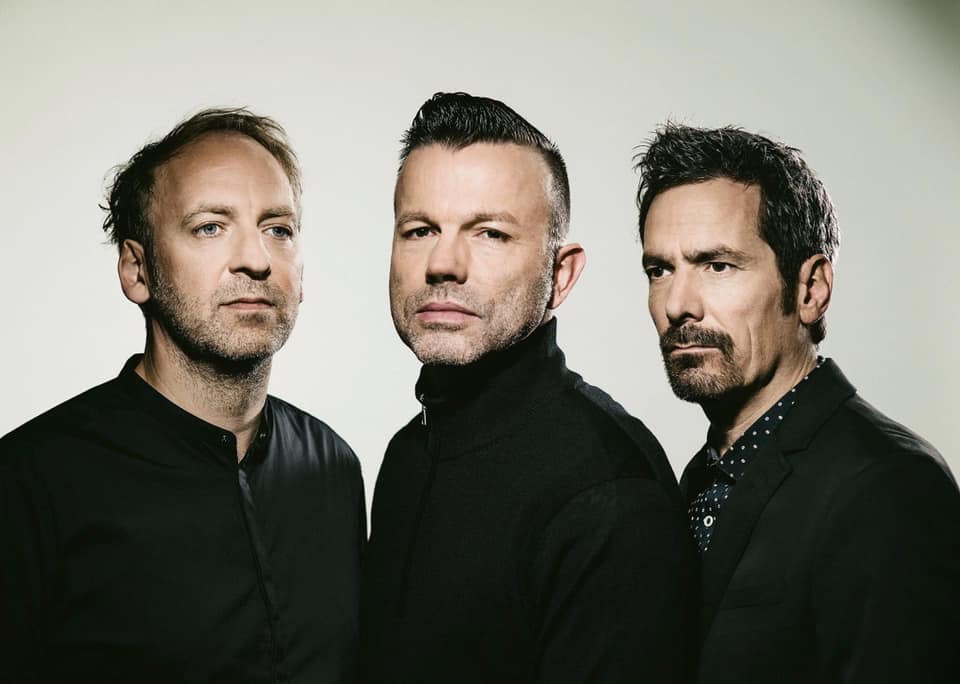
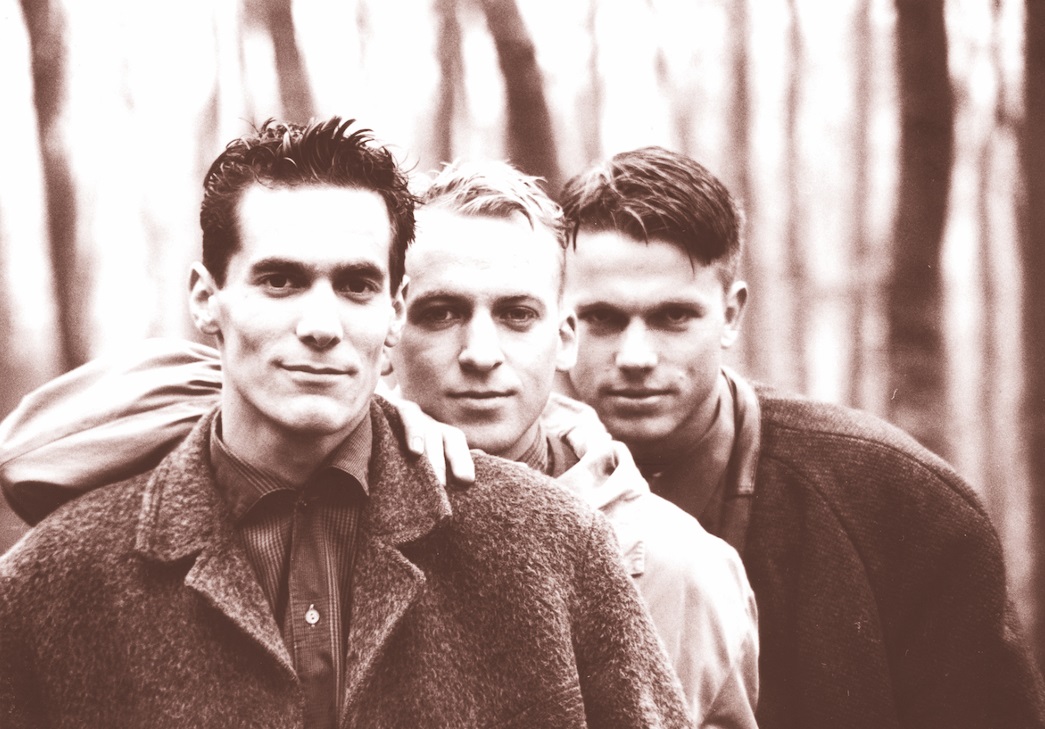
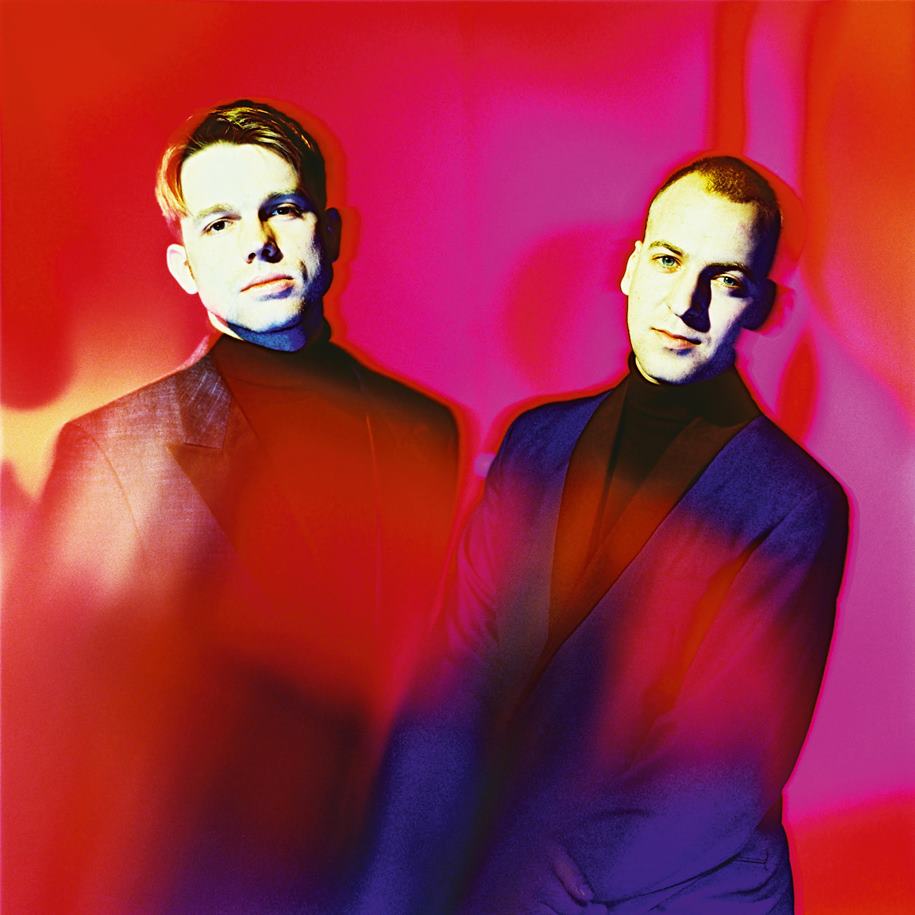
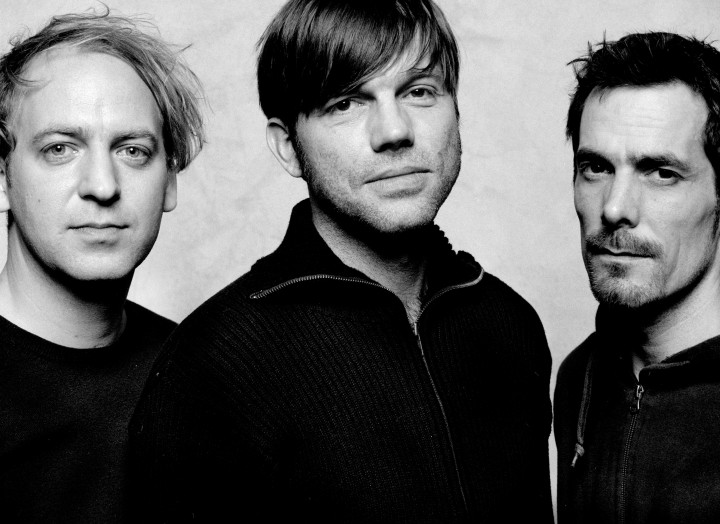
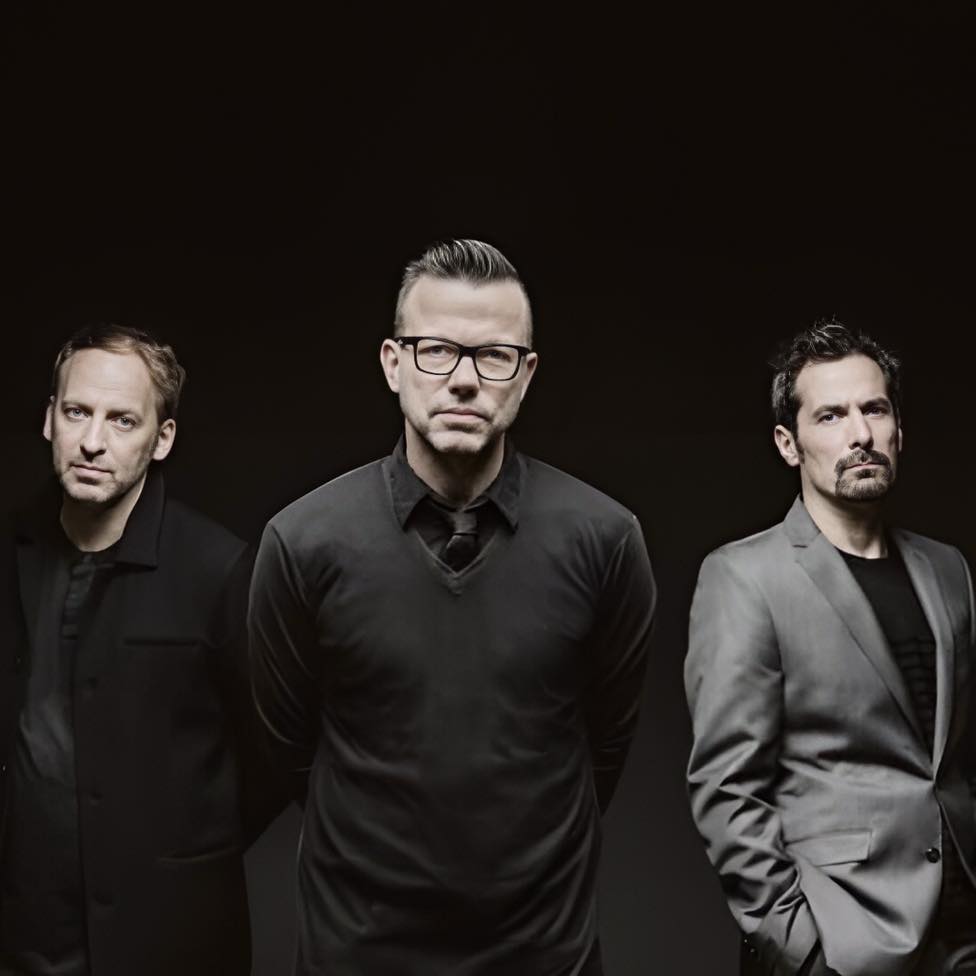
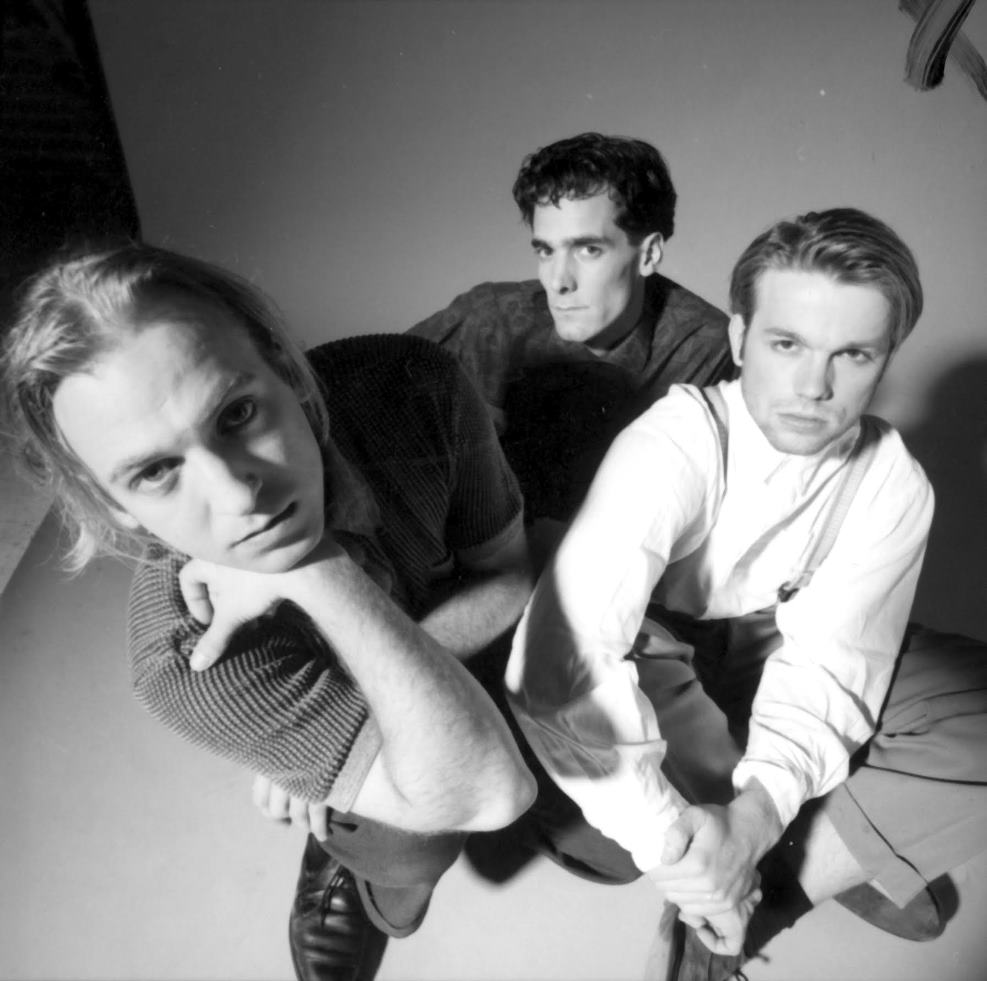
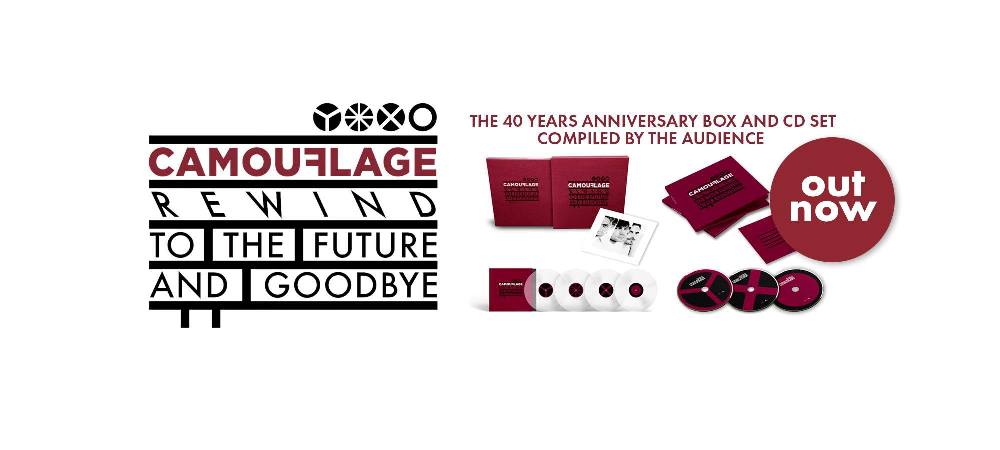
Follow Us!